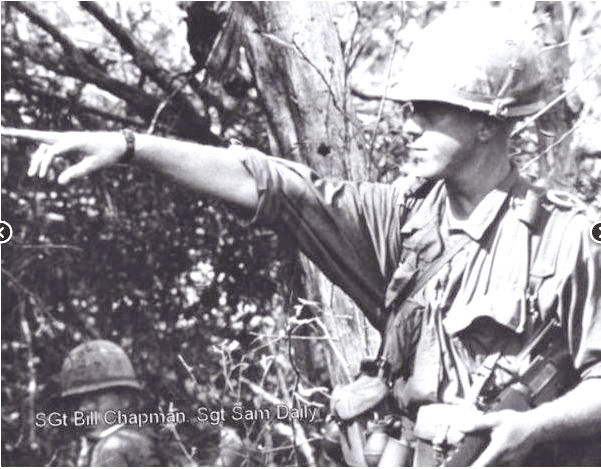HARLINGEN — During the late night hours of Jan. 30, 1968 the Viet Cong and the North Vietnamese People’s Army of Vietnam attacked more than 100 towns and cities and military bases in South Vietnam.
The attack lasted eight months.
U.S. Marine Corporal Ramiro Gomez, 22 at the time, was on the U.S.S. Iwo Jima when he hopped on a helicopter and headed to the Battle of Hue after the attack.
“We flew in one day and were back two or three days later,” Gomez, 72, recalled yesterday from his home in McAllen over the phone. “Most of the heavy fighting had already finished.”
North Vietnamese executed thousands of people at the Battle of Hue.
The war soon declined and U.S. sought negotiations to end the war.
Gomez was with the Second Battalion Fourth Marines during the war.
He was at the end of his tour when his company commander ordered him to go back to battle after the Tet Offensive because they had the most experience.
“Thank God I made it back,” Gomez said recalling the Tet Offensive. “Why was I spared I ask myself on a regular basis.”
Many soldiers never made it back from the Viet Nam War.
“That is when the war got hairy” said Sam Daily Jr. who recalled a Vietnam Veteran named Stinky telling him about the Tet Offensive durning a visit to his home to honoring his father Sam Daily.
A FATHER’S LETTER
Imagine at 16 years old, a hippie rings the doorbell and states he was with your father in the Vietnam War the day he died.
After the visit from the unknown veteran Sam Daily Jr’s mother hands him an old, faded and crumpled letter.
It’s from the father he never knew.
It was 1966 and U.S. Army Staff Sergeant Sam Daily wrote fatherly advice to the son he never met, and apologized for never coming home from the Vietnam War in the special letter.
Daily wrote his last letter to his family in Weslaco outside of De Nang in an area of the Vietnam War called the meat grinder. It’s where he gave the ultimate sacrifice.
“You could tell he wrote it in the rain somewhere in the jungle,” Daily Jr. said. “The ink was bleeding off the page.”
And his father’s emotions were clear.
“His last words were … Catarina,” who was Daily’s wife, the unknown veteran said. “I have never met a man like him before, or after the war.”
The man, only remembered by Daily Jr. as Stinky, a nickname given to him in Vietnam, said he was alive because of Daily’s father.
“He was a great man,” Daily Jr. said proudly about his father. “The letter said if ‘I had lived I would have taught you how to fish, hunt and play baseball.’”
His father also told him to refer to the bible for advice on how to be a man and a father because you will always have a father in God.
Daily died on Oct. 4, 1966, nearly two years before the Tet Offensive.
His company had come under intense fire from several fortified bunkers during a mission to extract a pilot from a downed helicopter inside hostile territory.
Daily was successful in suppressing the enemy fire that enabled his squad to resume its advance to extract the survivors.
He was awarded the Bronze Star Medal posthumously one year before the Tet Offensive on Jan. 30, 1967.
On Jan. 30, 1968, the Tet Offensive began when North Vietnamese troops and Viet Cong forces simultaneously attacked towns and cities in South Vietnam.
The attacks were a complete surprise because the enemy forces broke the temporary ceasefire that had been called for the Vietnamese lunar new year holiday of Tet.
The result of the conflict was a tactical victory for the U.S. and South Vietnamese.
It is estimated that 85,000 Viet Cong participated in the attacks in south Vietnam, supported by thousands of North Vietnamese soldiers.
During the surprise Tet Offensive, major targets in South Vietnam were attacked. These included more than 155 villages, towns and cities that were subjected to rocket fire and massive artillery attacks
Source: www.american-historama.org




